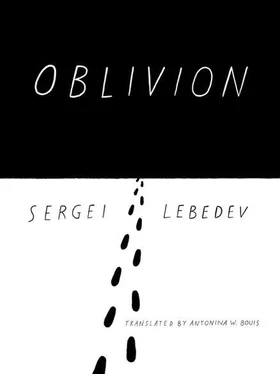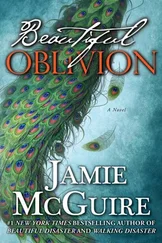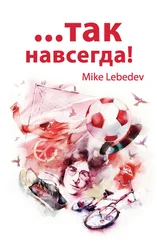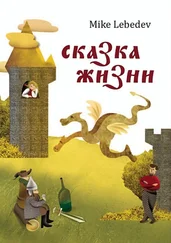No resident of this town,
no dead man,
but something in between.
—Joseph Brodsky

Translation of this publication and the creation of its layout were carried out with the financial support of the Federal Agency for Press and Mass Communication under the federal target program “Culture of Russia (2012-2018).”

The publication was effected under the auspices of the Mikhail Prokhorov Foundation TRANSCRIPT Programme to Support Translations of Russian Literature.
Istand at the boundary of Europe. Here, every cliff above the ocean reveals the yellow bone of stone and the ocher-red soil, looking like flesh; the bone crumbles under the blows of the waves, the flesh of the soil devours the tide. The ocean is so vast that eyes cannot encompass it. Here, Europe ends; the shore recedes, as if the continent was drawing into itself.
You came here out of the taiga and tundra in order to see the Columns of Hercules, to discover the world that gave birth to the Atlantes holding up the grim sky of your homeland, to breathe from the mouth of Gibraltar the life-giving air of the lungs of the Mediterranean—for those born in Russia this remains the limit of the inhabited world, as the ancient Greeks had thought.
This boundary has challenges: a new, different life lies only beyond the faceless ocean waters, similar to death; dry land is unfolding constancy, while the ocean interrupts this, demanding spiritual effort, a great goal for which you can renounce the familiar solidity of land and step onto an unstable ship deck.
My soul and heart are filled with the memory of spaces yearning for the polar circle, filled with their muteness craving a word, filled with the eye-bleaching whiteness of the snows, the blackness of the night, the blackness of the mine where the air is impoverished by breathing and does not know the dawn.
That is why for me, having come to the edge of the world, the goal lies not ahead but behind: I have to return. My trip is over and the return trip must begin in words.
I sense—this sensation is sudden even though it ripened long ago—that I am a European to a greater degree than the inhabitants of the country that looks out onto the Atlantic as a balcony looks onto the street.
I was at the other edge of Europe, which breaks off with rocky ledges into the swamps of Western Siberia; I saw the dark back alleys of the European continent, its Finno-Ugric sheds, its backside, its foundation; I stood beyond the polar circle in the Ural Mountains, where Europe and Asia meet: on the European slope, only the polar birch grows, low and twisted by the winds, while on the Asian side there are cedars, tall, powerful, their roots breaking stone, and in the sky overhead storm fronts collide from the two great plains.
It was there, where Europe’s life force weakens, where it is only enough for reindeer moss and lichen while the thick Asian forest and grass threaten to overflow the crest, that I first felt I was European.
There, in the middle of the range, thinking or speaking, trying to write something down, you suddenly realize: you have reached the edge of language . On the Asian side you have to make some effort to name objects; they seem to slide away from being named. Or to put it a different way—between name and thing arises a thin and tight film similar to the caul that surrounds a baby in his mother’s belly; things here have not yet been born for the language you speak. Fir and pine will be fir and pine for you, but the names will be alien to their essence, which requires different sounds and responds harmoniously only to them.
The edge of language, the outskirts of the European world; beyond there is only the flatness of Siberia’s swamps. Here you will learn what muteness really is: you can speak, but the world does not respond to speech. You realize that your home-land is your language; its strengths, its defects are your integral strengths and your defects; outside language you do not exist.
I recall being in a village in early, frosty spring: huts squashed by the long-standing gray snow, hardened prints of felt boots and sled runners on the road; the reluctant awakening after winter—the shaggy winter dreams reeking of lime and felt are dissolved in the air inside the house.
They had recently closed the village school, there weren’t enough pupils. The building, an old manor house, was boarded up. The school stood on a conspicuous hill, and for several months the village lived with a view of the former house of landowners, abandoned as if in retreat.
A monument to a cosmonaut was stuck in the schoolyard, as if he had landed there and being unneeded was placed on a pedestal and painted a silvery color to match his space suit. The school, despite the cold that froze out odors, smelled of damp wallpaper and mice. By the stove in the corridor the watchman sat on a stool, a man composed of felt boots, quilted trousers, quilted vest, and hat with earflaps; the floor-boards creaked and it sounded like chalk on the freshly erased blackboard; through the keyhole I could make out desks and chairs, clumsy and heavy to match the children’s backpacks; a ruler lay on one of the desks, as if the teacher had forgotten it and would be back.
The watchman sat by the stove; piles of worn, scribbled-over textbooks that had been through many hands lay by the wall—Our Mother Tongue, fourth grade. The watchman took one book at a time, tearing off the cover and crumpling the pages so that they would catch faster into flames, and tossed them into the stove. “They shut the school,” he said. “They don’t issue firewood. So we use this for heat, you can’t defrost them anyway. It’s a big library, it’ll last until April.”
They fed the stove in the shut school with the Russian language textbooks. How you hated those books as a child, those “Questions on the text,” the paragraphs marked “Test yourself,” that enlarged, easy font, rounded like the corners of the desk, so that children didn’t hurt themselves! You were ready to weep, because now none of it meant anything.
There in that Volga village, in the midst of fields covered with birch shoots, I learned what a person’s mother tongue meant, mother tongue without quotation marks, without a school’s edifying insistence.
Birches, snow, firewood, sky, road, fire, smoke, frost—I repeated the words that I remembered for only a slightly shorter time than I remembered myself. Birches, snow, firewood, sky, road, fire, smoke, frost—the words grew, as if they were material, had material energy; the words sounded symphonically, one through another, without blending, the frost was frosty, the fire fiery, the smoke smoky; the words became translucent, melting slightly, like pure flame, their phonetic casings lost their hardened precision, and the eye perceived the pure essence of meaning—like a bubble of air in a precious stone, refracting the light differently.
A bubble of air that is fractionally older than the stone—the air was there before the mineral appeared. This tiny gulp of older air, the integral soul of the word—it was what made the word real, belonging to life and death—that is what I saw and felt then in the snowbound village, where the white roof of the school was covered with splotches of book ash—the textbooks burned smoky and dirty, and the ash metallic and greasy from the thick typographic ink.
Читать дальше















